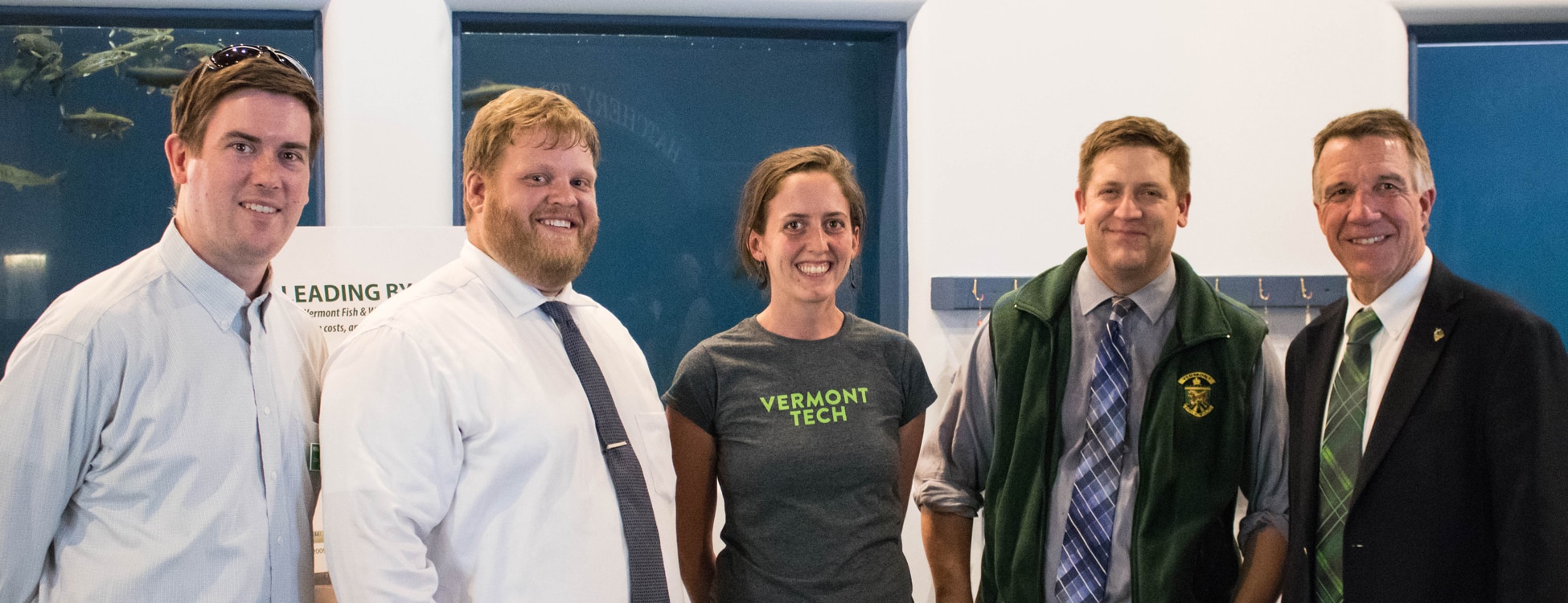The Department of Fish and Wildlife (DFW) were recognized for their energy improvements by Governor Phil Scott at a press conference Wednesday, September 20th at the Ed Weed Station. Morgan Easton, a senior in the Vermont Tech Architectural Engineering Technology program, was on hand for her role as an intern with the department alongside her supervisor, DFW’s Culture Operational Chief, Adam Miller. At the press conference, Miller thanked the entire team for their hard work on the improvements.
Five state-run fisheries keep our Vermont rivers, lakes, and freezers stocked with fish. In the 18 months it takes for Brown Trout to grow from an egg to adulthood, chilly water from the lake has to be heated, the fish need proper food and sunlight, and all their waste has to be properly filtered. The energy costs to run a fish hatchery are what you would expect of any farm, astronomical.
Luckily, the team at the Ed Weed Fish Culture Station in South Hero had a number of bright ideas to make the plant more energy efficient. Water cycling, solar panels, and improved lighting were some of the obvious problems that were tackled first. Morgan Easton spent her summer internship facilitating the planning and implementation of these ideas.
“Collecting information from utility bills and tracking usage was one thing. I also worked with Efficiency Vermont and Building and General Services (BGS), along with the hatchery managers and engineers to identify potential energy conservation measures at the five hatcheries around the state.”
After getting all the data, Morgan analyzed potential costs, payback periods, and energy savings over time to determine the best opportunities, and submitted proposals for funding.
She also made it easier to train future Vermont Fish and Wildlife interns by creating a guide on ‘How to be an Energy Analysis Intern for Vermont Fish and Wildlife’ which she presented to the management team.
Morgan’s internship was set up by Miller (2nd from left) and Professor Michelle Sama, Chair of the Vermont Tech Science Department, to get students involved in the Vermont Agriculture and Environmental Laboratory (VAEL) before the new lab is built on Randolph Center Campus.
In a written correspondence Professor Sama stated, “Because of the positive nature of this internship, additional state agency internships are being developed strictly for Vermont Tech students.” Morgan’s fish hatchery internship is just the beginning of what will be many opportunities for both Vermont Tech and VAEL to benefit from their co-location in Randolph.
